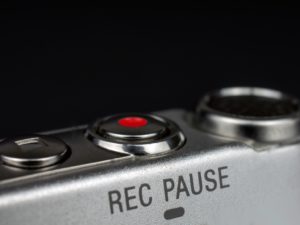What You Need to Know about Recording Someone without Their Knowledge
Posted July 24th, 2018 by Anthony Carbone, PC.
Categories: Family Law.
 Surely you’ve heard the scuttle. According to recent news stories, it appears that investigators have copies of audio tapes of President Trump speaking to his former attorney. Apparently, the recordings came as a surprise to the president – he was taped without his knowledge. Is this legal even?
Surely you’ve heard the scuttle. According to recent news stories, it appears that investigators have copies of audio tapes of President Trump speaking to his former attorney. Apparently, the recordings came as a surprise to the president – he was taped without his knowledge. Is this legal even?
Political implications aside – there is a lesson in the revelation. Like New Jersey, New York is a one-party consent state. Therefore, it’s perfectly legal to record a conversation – provided that at least one of the parties has consented.
Take this to a more personal level. You suspect your husband is cheating on you and you are determined to find proof. After a quick internet search, you learn the best way to set up a wiretapping device on your home phone. The trap is set, and you can’t wait to “listen in.”
Ultimately, your suspicions are confirmed. Your face turns beet red with disgust and embarrassment when you hear your husband talking to his lover. You figure the tape is enough to get more than your share after you file for divorce. After all, you have evidence that your soon to be ex-husband is clearly guilty of adultery.
You immediately set up an appointment with an experienced family law attorney. You are shocked at what you learn during the consultation. First, it turns out that you did not obtain the recording legally. You didn’t have the consent of either party to audiotape them. You are further perplexed to learn that you are not entitled to anything more just because you claim infidelity as the reason for your break-up.
When Can You Record Someone Else?
Family court matters aren’t the only types of cases where you might be inclined to tape someone else. However, you should make sure you understand the basics of New Jersey’s Wiretapping laws. At the very least, you need to know that under NJSA 2A:156A-3, it could be a crime to record someone without their permission.
Again, there is an exception. If you and another person are involved in a conversation, you do not need to secure their permission to make a recording. You become the consenting party to the recording. For example, this makes it perfectly legal for you to record a conversation between you and the person who hit your car. He or she may admit their guilt in a personal phone call – and later deny it. You will be able to provide the proof to your lawyer.
The law gives further deference to audio recordings. It actually boils down to a matter of privacy issues. In legal terms, this is referred to as a “reasonable expectation of privacy.” Obviously, two lovers discussing personal matters have an expectation of privacy. However, there are circumstances where consent is not necessary because the conversation occurs in a public place.
Meanwhile, you should know that it isn’t just the recording that’s illegal – so is the distribution of the tapes. Therefore, you should forget about passing on taped conversations – or risk getting into even more trouble.
Contact Us
Have questions? You may think you are helping your legal matter by setting up recording devices. However, you want to ensure you are not doing anything against the law. Contact the Law Offices of Anthony Carbone for information regarding audio tapes and their use.


